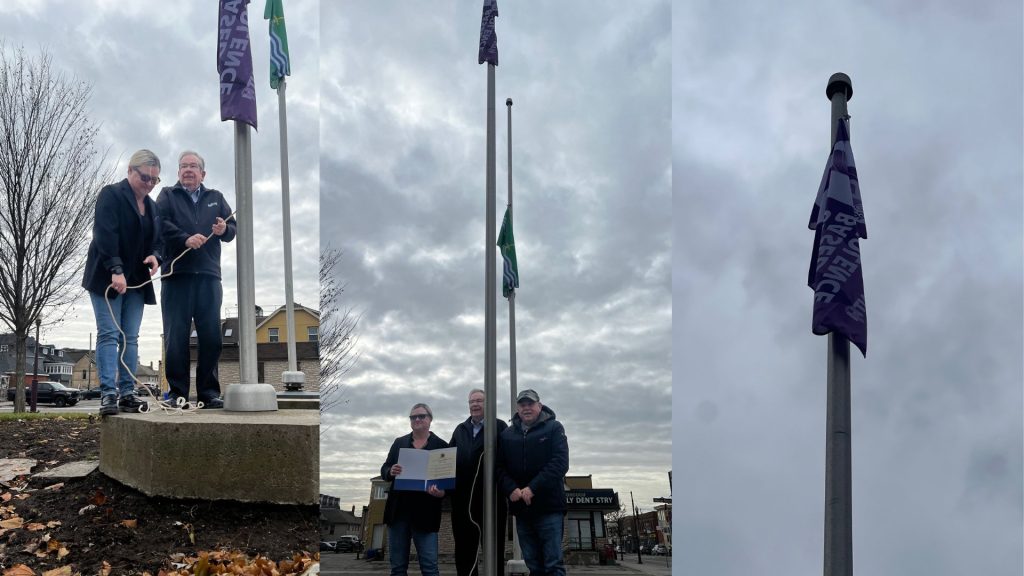This morning, members of City Council and YWCA Peterborough Haliburton gathered outside City Hall for a flag-raising to launch the 16 Days of Activism Against Gender-Based Violence. The campaign begins with the International Day for the Elimination of Violence Against Women and culminates on December 10th, International Human Rights Day. As these important days begin, we reflect on both the ongoing work that calls us forward and the generations of changemakers who have paved the way.

For over 130 years, YWCA Peterborough Haliburton has been a pillar of support for women and children in our community. What began in the late 1800s as a place where women could learn skills, access education, and find safe spaces to gather has evolved into an organization that provides critical services for women and families experiencing intimate partner violence (IPV).
From Hidden Struggles to Shelters: The 1970s–1980s
In the early 1970s, IPV was a private reality that women were expected to endure alone. It wasn’t recognized as a social problem by the police or government. That began to change thanks to activists like Lynn Zimmer, former Executive Director of YWCA Peterborough Haliburton, who helped launch Canada’s first crisis shelter for women fleeing violence.
In 1972, Zimmer was volunteering at Women’s Place in Toronto, a modest house run by feminists for political organizing. Women fleeing abuse began arriving, seeking safety, support, and basic necessities. The demand was immediate, and the need for a dedicated shelter became undeniable. Zimmer put up a note calling anyone interested in creating a women’s crisis shelter to meet, and a movement was born.
When Zimmer moved to Peterborough in 1981, the YWCA embraced a new mission: supporting women fleeing violence. By 1984, the Crossroads women’s shelters opened, providing a lifeline for local women and families.
Legal and Criminal Justice Reform: The 1980s–1990s
While shelters provided immediate safety, broader change was needed to protect women in the long term. In the 1980s and 1990s, legal and criminal justice systems began responding to IPV in ways they never had before. Feminist advocates pushed for recognition of the severity of abuse, leading to key reforms: broadening definitions of sexual violence, introducing mandatory charging policies for domestic assaults, and creating new laws like criminal harassment, commonly known as stalking. These shifts laid the groundwork for a system where women’s safety became a matter of law.
Looking Forward: Prevention Across Generations
We’re at a pivotal moment for change: Ontario’s Bill 55 was drafted in response to key recommendations from the 2022 Renfrew County Inquest and the federal government has pledged $660.5 million over five years for women’s and gender equality initiatives, offering potential new resources for shelters and support, provided provincial and local governments also take action.
As YWCA Peterborough Haliburton continues to adapt, we know that lasting change requires addressing the root causes of violence and building a society where women and children can thrive safely across generations.

